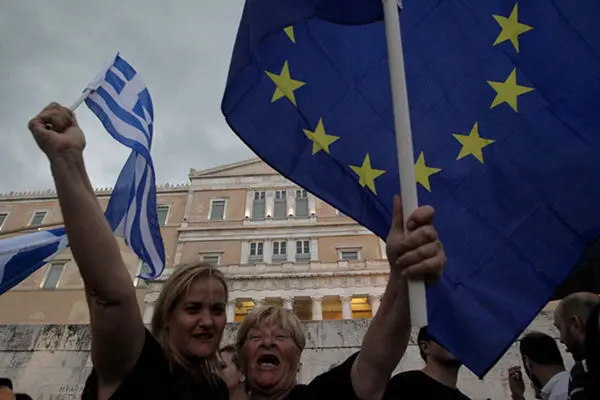German Chancellor Angela Merkel emerged without agreement from her marathon talks on forming a new coalition government, raising the prospect of new elections.
After the break of “Jamaica Talk”, she met with German President Frank-Walter Steinmeier to inform him that she was unable to come to a deal after the pro-business Free Democratic Party (FDP) pulled out of talks.
There are many heated comments and debates on the impact of Merkel’s failure and the future of Germany and Europe. But a more profound question should be considered carefully by political experts: what is the deep root behind Merkel’s defeat of “Jamaica Talk”?
Germany plays an indispensable role in EU politics and economy
Observers at the regional and international levels are generally worried about Merkel’s “Waterloo”. As Gideon Rachman, a columnist for the Financial Times, commented that Germany’s economic prosperity and political influence have steadily risen under the Merkel administration. Merkel has successfully proved her unique value and the indispensable role of Germany in European political-economic life on a number of key issues, such as the EU’s relations with Russia, (Middle East) refugees and immigrants, the management of Euro, and so forth.
In the political process of European integration, Germany’s support and agreement hold the balance of Brussels. For example, at the moment, Emmanuel Macron of France is pushing a series of initiatives that aim to set up a fiscal-taxation union and a joint military force for overseas intervention within the EU framework. Everybody knows that Germany is the “first engine” of the European Union. Therefore, without Berlin’s positive response and endorsement of those issues, Macron’s proposals can only become a mirage or illusion.
The fragmentation of German party politics
When we are talking about Merkel’s failure in the “Jamaica Talk”, it must be noticed that even Merkel’s own coalition party CDU/CSU is not a native party that runs independently or grows naturally, but actually a product of strategic alliance formed by the German Christian Democratic Union (Deutschland Christlich-Demokratische Union, abbreviated as CDU) and the Christian Social Union (Christlich-Soziale Union, abbreviated as CSU). As a result, for all political elections and campaigns, the top priority issue for Merkel is to keep the unity of her members by marathon negotiations and party/faction leadership talks.
Unifying divergent party members and factions is a tough work. The differences in the political –policy preferences between Merkel’s CDU/CSU and her allies are hard to unify. What is more, the structural contradictions of power distribution among triumph allies are even more difficult to reconcile, because the nature of parliament-power-distribution is a zero-sum game, in which one party/faction enlarges their power/influence means the loss of other counterparts.
The sad situation above is normal in political struggles. Thus, powerful and wise politicians have to always try their very best to overcome internal conflicts within their party and make fast coalitions or “united fronts” with other parties or factions. Is Merkel a worthy politician with enough political hands and toolkits? The answer must be affirmative, considering her stable approval rating in most regions of Germany during the last 12 years, as well as her high reputation as one of the best EU managers within and beyond Europe. However, even if this is the case, Merkel still felt overwhelmed in integrating her man into a battleship. What are the deep reasons behind the presentation?
Le Monde, a mainstream newspaper in Europe commented in a commentary on November 21st that the failure of Merkel’s “Jamaican Talk” was a serious setback for her long-standing governing style. After the election, the gap between the votes of the parties was apparently narrowed. There was no party with an absolute superiority. Such a differentiation of political parties reflected the social division in Germany and was an unmanageable manifestation of different demands and contradictions in the society.
“The differentiation of German society” that Le Monde gets the very point. It is increasingly difficult to reconcile the people’s demands and the conflicts among political groups. More politicians are abandoning their responsibilities to unite and integrate their society, but just satisfying about the majority or a good approval rating that are high enough to offer them a seat in the parliament. In this way, people and people’s minds are no longer the guide of emerging policies which give the direction of their nation, but just some cheap tools for politicians to struggle for power and prestige. This is the deep root of the current chaotic situations in Germany, as well as many other western “democratic” states.
Wang Peng is the Research Fellow at the Chahar Institute and China Institute of Fudan University.
(ASIA PACIFIC DAILY)
 简体中文
简体中文

